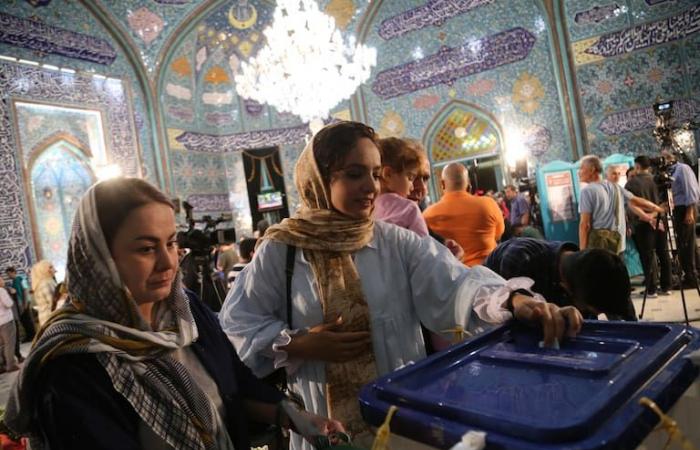Hear
TEHRAN.- In an election in which the Iranian population seemed to express its disagreement with the serious economic situation through a Record absenteeism, none of the candidates obtained more than 50% of the votes on Friday and there will be a second round next Friday between a moderate legislator and the protégé of the supreme leaderthe Interior Ministry announced on Saturday in Tehran.
The vote to replace Ebrahim Raisi after his death in a helicopter crash came down to a tight race between a low-profile lawmaker, Massoud Pezeshkian, the only moderate in a field of four candidates, and former Revolutionary Guard member Said Jalili. .
The Interior Ministry said neither candidate had secured the 50 percent plus one of the more than 25 million ballots cast, which is needed for an outright victory. Pezeshkian is leading with more than 10 million votes, ahead of Jalili with more than 9.4 million.
But the important data of these elections was the record absenteeism. Of the 61 million voters called to the polls on Friday, only 40% voted. Some opponents, and particularly from the Iranian diaspora, had called for a boycott of the elections. The supreme guide, Ayatollah Ali Khamenei, the most important position in the political and religious structure of the Islamic Republic, had precisely placed emphasis on urging the population to participate with his vote. During the 2021 presidential elections, in which no reformist or moderate candidate had been authorized, the abstention rate reached 51%, which at the time was a record.
The clergy expected a high turnout, since it faces a legitimacy crisis fueled by the population’s discontent in the face of economic difficulties and restrictions on political and social freedom.
In any case, power in Iran ultimately resides with Khamenei, so The final outcome will not mean any major change in Iran’s policy on the nuclear program or its support for Middle Eastern militias. But the president runs the government day to day and can influence the tone of the country’s politics.
The election comes at a time of heightened regional tensions over the war between Israel and Iranian allies Hamas in Gaza and Hezbollah in Lebanon, as well as increasing Western pressure on Iran over its rapidly advancing nuclear programme.
With Iran’s supreme leader at 85 years old, The next president is likely to be closely involved in the process of choosing Khamenei’s successor.who is looking for a fiercely loyal president who can guarantee an eventual smooth succession to his own office, say people familiar with the situation and analysts.
The only candidate from the reformist sector who was allowed to compete is Pezeshkian, a 70-year-old doctor and former Minister of Health between 2001 and 2005 during the presidency of also reformist Mohammad Khatami. During television debates Pezeshkian promised greater openness in foreign policy and had the support of Javad Zarif, the former foreign minister who signed the nuclear deal, known as JCPOA, in 2015.
The anti-Western views of Jalili, Iran’s former hardline nuclear negotiator, contrast with those of Pezeshkian. Analysts say that An eventual Jalili victory would signal the possibility of an even more antagonistic turn in the Islamic Republic’s foreign and domestic policy.
A victory for Pezeshkian, a mild-mannered legislator, could help ease tensions with the West and improve the chances of economic reform, social liberalization and political pluralism. Pezeshkian, loyal to Iran’s theocratic regime, has the backing of the reformist faction that has been largely marginalized in Iran in recent years.
“We will respect the hijab law, but there must never be any intrusive or inhumane behavior towards women”Pezeshkian said after casting his vote.
He was referring to the 2022 death of Mahsa Amini, a young Kurdish woman, while in police custody for allegedly violating the mandatory Islamic dress code.
The unrest sparked by Amini’s death became the largest demonstration of opposition to Iran’s clerical leaders in years.
Reuters and AFP agencies
THE NATION


